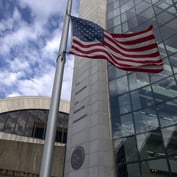
This September marks the one-year anniversary of the settlement of late trading and market timing charges against hedge fund manager Canary Capital Partners.
That case, first announced on Sept. 3, 2003, was brought by the attorney general of New York, not the Securities and Exchange Commission.
The aftermath of Canary witnessed a flurry of investigations and complaints against many major mutual fund groups at a pace and ferocity that is unprecedented since enactment of the Investment Company Act of 1940. The investigations and complaints were for facilitating market timing or late trading, for permitting portfolio managers to time funds they managed, or for directing brokerage commissions to broker-dealers for selling fund shares.
In August 2004, the first market timing settlement was announced against insurers in connection with variable annuity contracts.
The Canary case caught the SEC by surprise. In its aftermath, many state regulators and legislators questioned whether the SEC should have been better attuned to practices that they felt were abusive. Indeed, at one point, the attorney general of the State of New York called for the resignation of “the head of the bureau overseeing the mutual fund industry.”
Surveying the landscape one year after Canary, however, shows that the SEC has emerged as the most significant governmental authority in marshalling mutual funds and other financial institutions through the post-Canary challenges. Indeed, the agency seems to have been strengthened by its response to the scandal.
State attorneys general dominated the early enforcement actions, but with only a few exceptions, the SEC, with its greater resources and expertise, has persevered and now dominates the post-Canary enforcement agenda. The agency has assessed huge fines as part of settlements, in some cases in excess of $100 million, which have been multiples of damage estimates from independent sources.








 September 30, 2004 at 08:00 PM
September 30, 2004 at 08:00 PM










